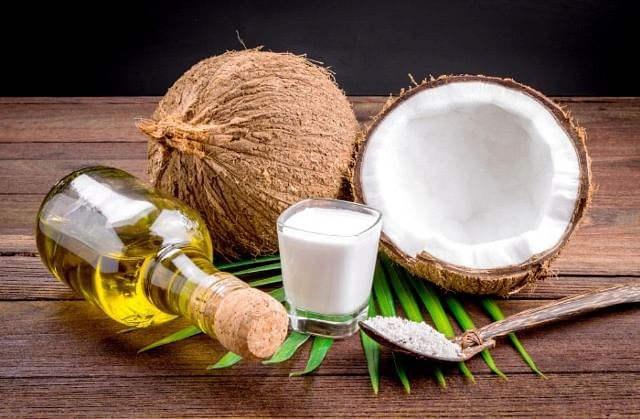
The Food Safety and Standards Authority of India (FSSAI) as a prelude to the Christmas – New Year celebrations, conducted an inspection coconut oils of 74 brands were found to be adulterated. The storage, distribution and sale of products under any of these brands have been banned in an order issued by food safety commissioner Anand Singh. This year about 170 brands have been banned by the food safety department after they were found to have been adulterated. Earlier in May, 45 coconut oil brands and in June 51 brands were banned. Minister for health KK Shailaja said that this move was part of providing the public with safe food in connection with Christmas – New Year sales.
The food safety department has deployed 38 special squads to check if adulterated oils are on sale as part of the festival season.
The crackdown by the Food Safety department follows after tests showed adulteration in banned products, violating the provision of the Food Safety and Standards Act, 2006. Earlier in May 2018, the department had also banned the sale of 45 brands of coconut oil due to adulteration, and another 51 brands in June. With the latest move, a total of 166 brands of coconut oil have been banned in Kerala this year alone.
Food safety is everybody’s concern and authentic methods for detection of adulterants in food is required for value assessment as well as to assure consumer protection against risks.
Adulteration of food not only decreases the quality of food products but can also lead to a number of ill effects on the health. The Commissioner of Food Safety in Kerala banned the sale, storage, distribution and manufacture of some 74 brands of coconut oil in the state as they were found to be adulterated in an inspection done by the FSSAI as a precautionary step to contain adulteration in food items ahead of the Christmas and New Year celebrations.

According to the FSSAI, some common adulterants and contaminants can be tested by citizen themselves, although there are tests that need sophisticated equipment and highly trained personnel for the procedure. Meanwhile, the FSSAI has released a manual to help you determine if the food you bought from the store is adulterated and create awareness in consumers about food safety. Here’s a 4-step testing method for detection of adulterants in coconut oil.
-
In a transparent glass, take coconut oil.
-
Place the glass in your refrigerator for 30 minutes (do not keep it in the freezer).
-
After refrigeration, the coconut oil will solidify.
-
If the coconut oil is adulterated, other oils remain as a separate layer.
If you’ve bought coconut oil and are wondering whether the product has been contaminated, you would want to take this quick test to stay safe and healthy.
The Cochin Oil Merchants Association pointed out that the authorities take interest in only publishing the names of the banned coconut oil brands and the companies but fail to take further action against them. The coconut oil produced by the same company is brought to the market in different licenses. Many of them are included in the list of banned brands. Similarity in brand names also make it difficult to distinguish between two brands.
Most of the companies give their coconut oils names beginning with ‘Kera’ and ‘Coconut’. Oil Merchants Association pointed out that the ban cannot be imposed unless the products in shops are seized. Agmark certified coconut oil brands were also seized and banned after finding adulterants in them. Adulterating Agmark certified products is a serious offense which may invite punishments including imprisonment.
Palm oil and palm kernel oil are usually added in coconut oil as adulterants. There are no proper laboratory facilities in Kerala to detect adulteration. The samples are sent to the government labs in Mysuru and Pune which is a rather expensive and time consuming procedure. Due to this, the cases are settled charging only a fine, it is alleged. Earlier, the association had approached the high court demanding action against the offenders. The court had ordered to destroy the adulterated coconut oil and to cancel the license of the companies. Association President Thalath Muhammed said that the Government should initiate action to set up a proper system to detect adulterated coconut oil.















